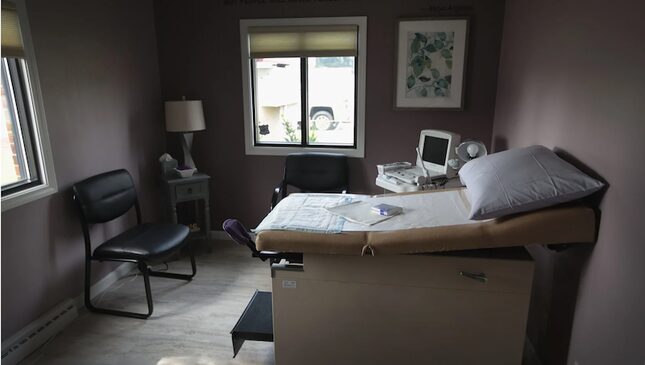The Coronavirus Pandemic Is Forcing Abortion Providers to Make Impossible Decisions
Latest

The Choices Memphis Center for Reproductive Health, a small clinic in Tennessee, had two doctors providing abortion care until a few days ago. The center, which draws patients from all over the region, sees anywhere between 20 and 40 patients a week, according to its assistant director Katy Leopard: They come from Mississippi, where there is only one clinic providing this kind of care, and from Arkansas, where abortions can be hard to come by, and sometimes from even as far as Kentucky.
In the United States, an estimated 11.3 million women live more than an hour’s drive from an abortion provider, and often doctors will split their time between clinics to provide more geographically comprehensive care. Last year, the Los Angeles Times shadowed a provider who performed 50 abortions in 60 hours when she “commuted” from California to Texas, a feat that now given a roiling pandemic and orders from state governments to “just stay home” seems difficult, if not impossible, to imagine. But clinic workers and reproductive health advocates are trying to manage, considering that even in moments of global crisis, unwanted pregnancies don’t stop.
In Tennessee, a person considering terminating a pregnancy must wait 48 hours after stating their intent at a clinic. At Choices, a 70-year-old retired physician was doing that intake work while another, younger doctor performed surgical abortions a few times a week. Confirmed coronavirus cases are up to nearly 200 in Tennessee, and in Memphis, many businesses closed last week. Choices’ elderly doctor was working “in our conference room with a plexiglass shield in front of him,” says Leopard. But by mid-week his family asked him, as someone at high risk should he be infected with the virus, to stop seeing patients. He did.
The clinic’s other doctor is picking up a few more days, though he’s “experiencing a great deal of anxiety,” and worried he’ll get sick, Leopard says. But “we can’t do without him.” If he fell ill or stopped working, Leopard says the clinic would be forced to close: “I don’t know that we could find another doctor licensed in Tennessee.”
-

-

-

-

-

-

-

-

-

-

-

-

-

-

-

-

-

-

-

-

-

-

-

-

-

-

-

-

-

-

-

-

-

-

-

-

-

-

-

-








































